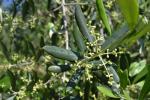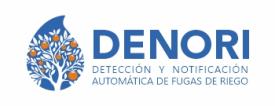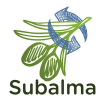PLAHUD Operational Group: Olive oil authentication platform using fingerprints
- Type Operational group
- Status In progress
- Execution 2023 -2025
- Assigned Budget 297.979,37 €
- Scope Autonómico
- Autonomous community Andalucía
The PLAHUD platform will allow the various stakeholders in the sector and their laboratories to access it for:
Verify that a particular olive oil has not been altered or mixed with other vegetable oils by means of fingerprint classification.
Authenticate virgin olive oil throughout the marketing process, so that fingerprint comparisons allow for identification. Furthermore, laboratories will have access to the protocols for performing the instrumental analyses required in each case, through access to their PLAHUD user profile, where they will subsequently upload the acquired fingerprints for processing and issuing results to producers and marketers within the value chain.
Expected impact: From an economic perspective, quality differentiation has proven to be the most effective tool for enhancing the value of virgin olive oil production. In this sense, the proposed project, based on the authentication and identification of oils, represents a further boost for this market-oriented strategy. End consumers will receive a product free from doubt regarding blends with other vegetable fats of lower quality than olive oil. The entire sector will benefit from the system by having a repository/bank of digital fingerprints of the different batches of oils sold, which can be consulted as a means of verifying quality.
- Design of the PLAHUD platform.
- PLAUD needs analysis.
- Obtaining and standardizing "fingerprints."
- Design of the architecture of the PLAHUD system and subsystems.
- Design and implementation of PLAHUD.
- Adaptation of algorithms and classification of oils using “fingerprints.”
- Commissioning, testing and validation of PLAHUD.
- Design and implementation of the user interface.
- Deployment and commissioning of PLAHUD.
- PLAHUD online administration and technical support.
- Collection, storage and traceability analysis of products at different stages of the process
- Procedures for use by certification bodies Final report and dissemination of results
In the current context, there is growing consumer demand for extra virgin olive oil, with double-digit year-on-year growth rates, and the large price differential between olive oils and other vegetable oils increases the sector's concern about the need to ensure that virgin olive oils reach the end consumer unaltered.
Specifically, in order to verify the identity of oil batches in a commercial transaction, including batches of olive oil that have been mixed with another unknown vegetable fat, the current method of determination using a new limited set of compounds cannot ensure the identity of oil batches because it does not cover the large number of different compounds present in all fats.
In this context, alternative methods are needed, incorporating new technologies that mitigate or resolve the problem and allow access to this information and methodology at all stages of the food chain.
PLAHUD must become a hub or activity center where data and fingerprints of the oils are exchanged, processed and interpreted by the system and finally classified by a decision-making module, which, based on artificial intelligence, allows the identity of a given batch or volume of olive oil to be established against possible modifications in the composition, and to verify authenticity between quality categories or against other vegetable fats.
From an economic perspective, quality differentiation has proven to be the most effective tool for enhancing the value of virgin olive oil production. In this sense, the proposed project, based on the authentication and identification of olive oils, represents a further boost for this market-oriented strategy. Potential users, primarily the entire production and marketing sector, will improve their economic results by being able to differentiate the quality of virgin olive oils from other vegetable fats and their blends through fingerprint authentication.
Likewise, it will increase the value of production by recognizing the origin of virgin olive oils through the comparison of fingerprints at different points in time and across physical locations for the same batch of oil. The entire sector will benefit from the system by having a repository/bank of fingerprints for the different batches of oil sold, which can be consulted as a means of verifying quality.
Finally, the PLAHUD platform incorporates the digitalization of quality-related processes through the use of advanced technologies related to the digital fingerprinting of olive oils and their differentiation, using artificial intelligence algorithms, establishing a knowledge network that integrates the entire sector.
- Name of coordinator/entity: Foundation for the Promotion and Development of Olive Groves and Olive Oil
- Postal address: Calle Sierra Morena, 13A, Terra Oleum Building, Geolit. Technology Park, 23620, Mengíbar, Jaén
- Coordinator/entity email: luis.ortega@fundaciondelolivar.com
- Telephone: 953274976
- Fundación para la Promoción y el Desarrollo del Olivar y del Aceite de Oliva
- Universidad de Granada (agcasado@ugr.es)
- Cooperativas Agroalimentarias de Andalucía (aguzman@agroalimentarias-andalucia.coop)
- CRDO Sierra de Segura (gerencia@dosierradesegura.com)
- Instituto de Investigación y Formación Agraria, Pesquera, Alimentaria y de la Producción Ecológica (josea.garcia.mesa@juntadeandalucia.es)
- Fundación para la Promoción y el Desarrollo del Olivar y del Aceite de Oliva







